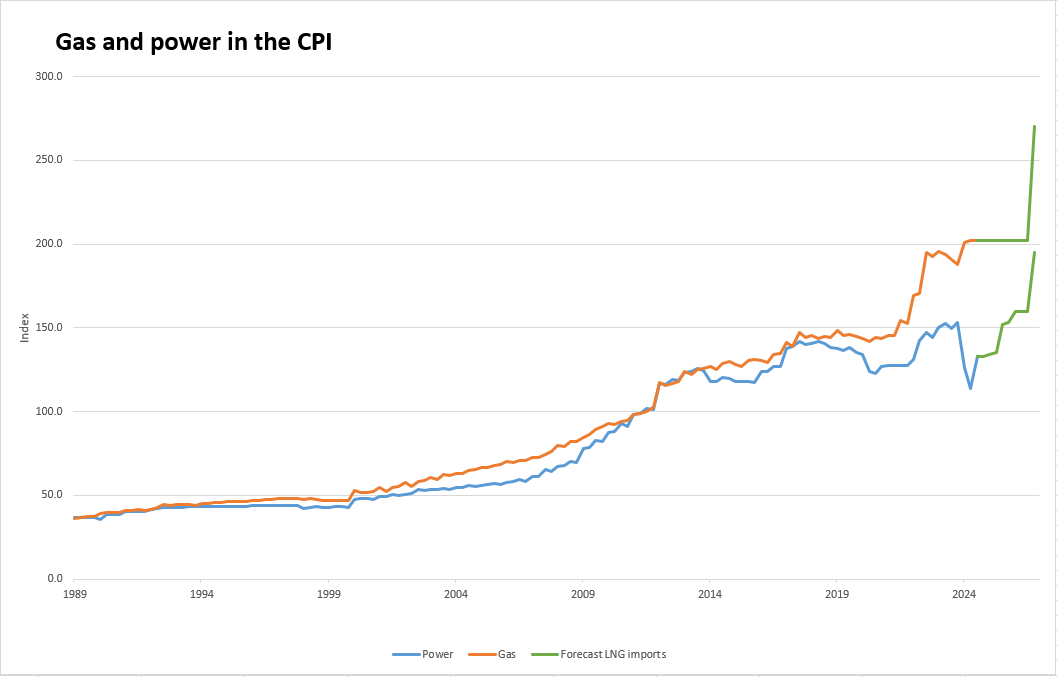Energy superidiot approaches peak gas stupid
We know that we are wrecking our economy with crazy high gas prices. We also know that this is a direct result of subsidising gas exports to China, which it sends back as battleships. We know that Japan resells huge quantities of cheap Aussie gas across Asia at a markup.
We know that we need gas to make the energy transition stable and (potentially) cheap. AFR.
Australia’s biggest renewables lobby group has admitted the industry needs do more to win support for wind and solar projects in regional areas and must be more pragmatic about the role of gas in the energy transition if it is to retain credibility.
The admissions by the Clean Energy Council, detailed in a letter to members seen by The Australian Financial Review, are part of a broader reset of the group’s strategy agreed at a two-day meeting of the board and senior management following Labor’s landslide election win.
We know we have an enormous quantity of cheap gas. ACCC.
The Queensland LNG producers control reserves and resources that well exceed their foundational LNG contract requirements (chart 1). These export contracts are currently expected to expire around the mid-2030s, after which there is projected to be a significant reduction in LNG production (chart 2). Governments should consider whether policy settings provide incentives for timely gas production while ensuring that there is adequate supply to support the domestic market during the energy transition.
To the extent the Queensland LNG producers’ gas forms part of the efficient mix of east coast supply over the long-term, measures will likely be needed to support timely investment and development of reserves, while securing sufficient gas for domestic use. This can include clear and timely environmental and other planning approvals. Governments should also consider stronger ‘use it or lose it’ conditions for future gas tenements.

We know that uncontracted gas currently exported is more than sufficient to meet East Coast needs cheaply. IEEFA.
The expiry of some long-term LNG contracts held by the three Queensland LNG consortiums from 2030 offers an opportunity for the Australian government to ensure any future contracts include provisions to supply the domestic market.
This is the view of the Australian Competition and Consumer Commission (ACCC) in its latest report on eastern Australia’s gas market. The 144-page report came with its customary warnings of future gas shortages, even though it repeatedly states that eastern Australia has sufficient commercial gas reserves for more than 10 years.
We know that Peter Dutton’s excellent gas reservation policy sought to take care of this problem permanently, and we know that Albo’s gas cowards and crooks have already eschewed this policy in favour of very expensive new supply projects.
Will it now allow the sale of the key East Coast asset to make unscrambling the egg impossible?
The ACCC says Santos’s GLNG will need to acquire more gas, either through developing its 2P and 2C (contingent) reserves or further purchases from the domestic market. It says: “If GLNG needs to purchase additional gas from the domestic market to meet its contracted export demand, it will need to compete in an increasingly tight east coast gas market, exacerbating forecast structural gas shortfalls into the 2030s.” This could be avoided if greater domestic gas supply conditions are attached to LNG contract renewals.
GLNG’s shortage of gas underlines the project’s problem since it was sanctioned in January 2011 as a two-train project. Santos never had enough proven gas reserves to fill two trains, and so has been exporting gas earmarked for the domestic market, and relying heavily on other gas producers to help fill the two trains.
Santos, which holds a pivotal position in eastern Australia’s gas market, is the subject of a takeover bid from a consortium led by Abu Dhabi oil and gas major ADNOC, to expand its LNG business. This implies that domestic gas market concerns are not a high priority for ADNOC, and this strategic tension warrants close scrutiny by Australian regulators.
With LNG imports still looming and developments of super-expensive gas in NT for domestic use to come, peak gas stupid is not here yet.

